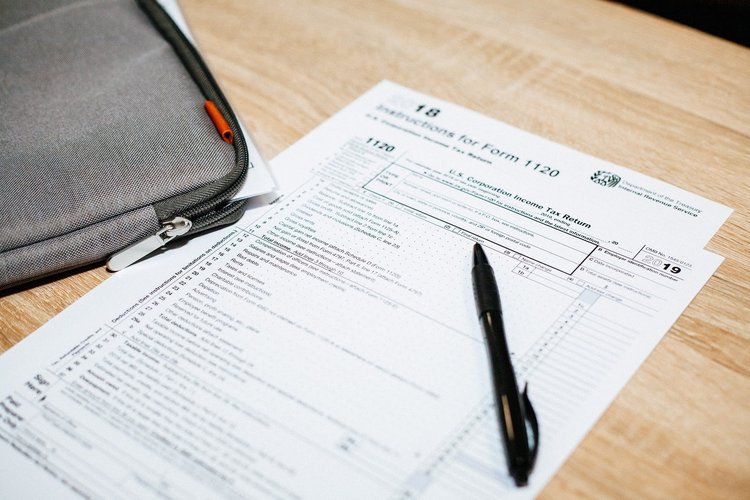EIN vs. SSN: What’s the Difference?
Your business might be the first and last thing you think about every day. You might even feel you and your business are one, inextricably linked.
But it’s healthy to have a little separation. The first step is by giving your business its own identity.
Overview: What is an EIN?
Employer identification numbers (EINs) separate a business’s identity from its owner’s identity. The IRS uses EINs to identify your business in tax documents. It’s like a Social Security number (SSN) for your business.
Since states manage business registration, businesses can share names if they’re registered in different states. The IRS issues EINs that uniquely identify U.S. businesses to prevent mix-ups.
Like an SSN, an EIN is a nine-digit number. The format is XX-XXXXXXX. Businesses use EINs to file taxes and apply for loans and licenses. Nonprofits share their EINs so donors can report the gift to the IRS for a tax write-off. Most businesses set up their EINs during the registration process.
Sole proprietorships and single-member limited liabilities companies (LLCs) with no employees generally don’t need an EIN. If you own any other business type or have at least one employee, you need an EIN.
The only people who don’t need an EIN for their businesses are freelancers who don’t employ anyone. The EIN application can be completed by email, fax, or online via the IRS EIN portal. It’s free to obtain an EIN through the IRS.
The IRS does not have an EIN directory, but we can show you where to find yours with an EIN lookup.

Freelancers with no employees generally don’t need an EIN. Image source: Author
Is ITIN the same as an EIN?
The IRS requires all taxpayers -- both businesses and individuals -- include a tax ID number (TIN) on tax documents. The IRS uses SSNs, EINs, and individual tax identification numbers (ITINs) to distinguish taxpayers.
For tax purposes, SSNs and ITINs are interchangeable. However, ITINs and SSNs differ from EINs. The tax ID number type you choose depends on whether you’re filling out a tax form for personal or business tax purposes.
If you’re paying personal taxes, your federal tax ID number is an SSN or ITIN. Your personal tax ID number is your SSN if you have one. Those without an SSN use an ITIN when filing their personal taxes.
EIN vs. SSN: What's the difference?
An EIN is to a business as a SSN is to a person. The IRS tracks your personal tax filings with your SSN, just as it uses your EIN to keep tabs on your business filings.
SSNs (and ITINs) can be used only in a business capacity when you’re running a business that’s not required to file taxes separately from its owner, such as sole proprietorships and most single-member LLCs with no employees. Businesses that don’t file tax returns apart from their owners are called disregarded entities.
Consider Eric, a freelance photographer who doesn’t employ anyone. He pays his small business taxes through personal tax Form 1040. He operates as a sole proprietor and isn’t required to have an EIN.
Unless your business is a disregarded entity, you must use an EIN when filing a business tax return. Most business types must file returns separate from the owners’ personal tax forms, and EINs act as their distinct identifiers.
Regardless of your business type, you must have an EIN number when you have at least one employee or have certain retirement plans for self-employed people. Eric can keep using his SSN when paying business taxes until he grows his business by adding a new employee.
You need a new EIN when you change business types or transfer ownership. If Eric wants to establish his photography business as an LLC before hiring an employee, he should create the LLC before applying for an EIN.

Business tax forms require an EIN. Image source: Author
Can you use an EIN instead of a SSN?
If you’re like Eric and don’t need an EIN, can you get one anyway? Yes, you should, and here’s why.
There’s no way to avoid using your SSN on your personal tax forms, but there are other places you can replace your SSN with an EIN to make your business’s finances more secure and organized.
Having an EIN allows you to separate your personal and business finances. Most banks require an EIN -- and often an SSN -- to open a business account or credit card.
When you have a separate business bank account, you’ll no longer be asking yourself which expenses on your personal bank statement go into tax software as small business tax deductions.
EINs don’t need to be as closely guarded as SSNs because EINs are already public information. Lending institutions put measures in place to prevent business identity theft -- but, of course, fraud still happens.
Make the switch to an EIN
Save yourself a step by securing an EIN now for your growing small business. You’ll have faster access to credit lines and won’t miss a beat when hiring your first employee.
Alert: our top-rated cash back card now has 0% intro APR until 2025
This credit card is not just good – it’s so exceptional that our experts use it personally. It features a lengthy 0% intro APR period, a cash back rate of up to 5%, and all somehow for no annual fee! Click here to read our full review for free and apply in just 2 minutes.
Our Research Expert
We're firm believers in the Golden Rule, which is why editorial opinions are ours alone and have not been previously reviewed, approved, or endorsed by included advertisers. The Ascent does not cover all offers on the market. Editorial content from The Ascent is separate from The Motley Fool editorial content and is created by a different analyst team.
Related Articles
View All Articles